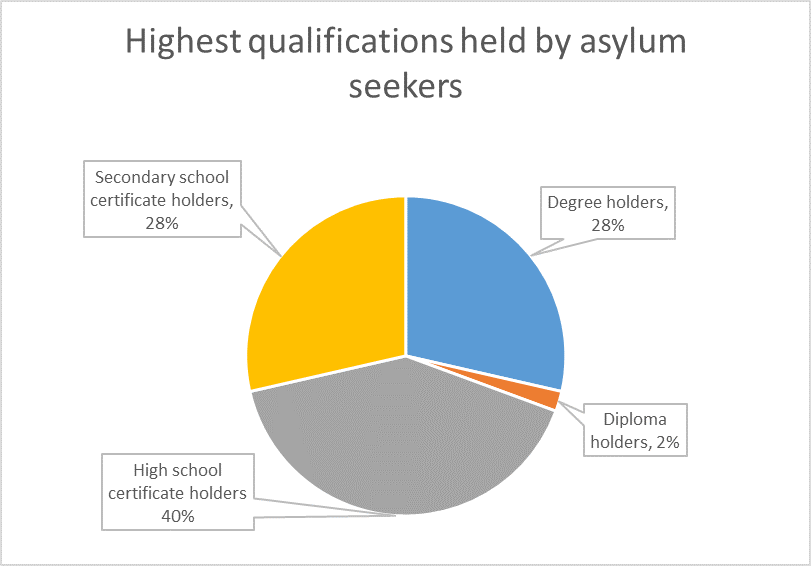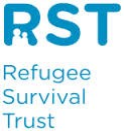Azita Jabbari, Policy and Research Officer at Refugee Survival Trust, reveals the outcome of their recent research in Glasgow
Refugee Survival Trust (RST) would like to share the findings of a recent research project with you.
This research, which collected quantitative and qualitative data, was conducted to complement similar research carried out by Refugee Action in England and Wales as part of the Lift the Ban campaign to restore the right to work to asylum seekers in the UK.
We surveyed 50 asylum seekers in Glasgow, which is the largest dispersal city for asylum seekers in Scotland.
The participants were 18 years old or above, from 13 different countries and were either studying at ESOL community classes or taking part on the RST internship program. The research was conducted through completing a simple questionnaire, asking about the highest qualification that the participant holds and any additional vocational skills they may possess.
The key findings are:
- All of the participants expressed their keenness to take on jobs, if they were given the right to work.
- 28% of the participants possess a University degree or higher (Master’s degree), while a further 2% had post high school qualifications, such as: HND; HNC and Diploma (usually by completing a 2-year college course).
- A further 40%, possess high school diplomas.
- Over 90% of all participants additionally possess skills, which are useful to the current job market. Skills include: hairdressing; office & admin and sales & marketing, but also more specialist professions were discovered among the participants such as: anesthetist; electrical technician; illustrator and mosaic art worker.
As is shown in the statistics above, 70% of the participants possess relatively high levels of education.

We believe the results of this relatively small-scale research, together with statistics collected from asylum seekers in England and Wales (please see: Lift the Ban – Why people seeking asylum should have the right to work; produced by the Lift the Ban coalition) clearly evidence that there are many skilled and qualified asylum seekers, willing to contribute to their host society by offering their skills and experience, if only they were allowed to work.
As an additional point, asylum seekers in the UK only receive £37.75 per person per week to cover all their living expenses, which often results in them struggling to look after their families. By being allowed to work, they could earn their own living, pay their taxes and find a sustainable route out of poverty.


